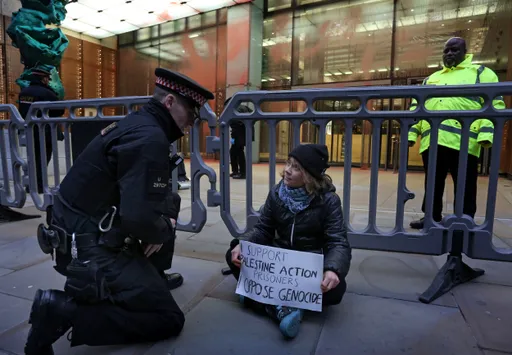Greek Cypriot authorities in southern Cyprus have deported 39 Israelis after they landed on the eastern Mediterranean island, Israeli media reported on Wednesday.
The Israeli tourists reportedly arrived at Larnaca airport on the Greek Cypriot-controlled side of the island on Tuesday, but were detained upon telling officers that they intended to travel to the Turkish Cypriot-controlled north.
Northern Cyprus officially broke away from the internationally recognised Republic of Cyprus in 1983, nine years after a Turkish military intervention divided the island into a Turkish Cypriot north and Greek Cypriot south following years of inter-communal violence.
Although there are no measures preventing tourists crossing into the self-proclaimed Turkish Republic of Northern Cyprus (TRNC) from the south, Greek Cypriot authorities have been tightening controls on travelling to the north since reunification talks collapsed earlier this year.
Authorities in southern Nicosia, the island’s divided capital, refer to the breakaway north as the “Turkish-occupied area.” The Greek Cypriot administration says it is illegal for tourists travelling to Cyprus to enter from Turkish Cypriot-controlled ports.
“Any tourist who arrives in Cyprus with the aim of vacationing in the territories occupied by Turkey is breaking Cypriot law and risks being returned to his country of departure,” Greek Cypriot representatives in Tel Aviv told Israel’s Hadashot news, according to the Times of Israel.
The Greek Cypriot administration’s foreign ministry earlier this week issued a reminder of a previous advisory warning tourists not to visit the north.
Tourists who intend on staying in blacklisted hotels in the north may be turned away even at points of entry under Greek Cypriot control in the south, the administration warned.
“The advisory said that anyone entering Cyprus from the northern territory would receive a black mark in their passport and be banned from returning to Cyprus for 10 years. Offenders could also be fined or face up to 12 months in prison,” the Times of Israel report said.
Measures implemented
In a similar incident in September, 35 Israelis were detained while trying to enter Cyprus, the Cyprus Mail newspaper reported. The tourists were later allowed into the country after the Israeli embassy in Cyprus contacted the Greek Cypriot Foreign Ministry.
Last month’s diplomatic hiccup, however, came about as a result of the Greek Cypriot Foreign Ministry’s failure to properly inform embassies and tour operators of its decision in June to deny entry to non-EU nationals expressing their intention to stay at blacklisted hotels, an anonymous source told Cyprus Mail.
Fifteen Lebanese nationals who attempted to enter the Greek Cypriot-controlled south last month were actually deported for the aforementioned reasons, the source said.
At the time, the Greek Cypriot administration had decided to suspend the measures for two weeks to ensure a smooth transition, the source added.
Turkish Cypriot Tourism Minister Fikri Ataoglu last month told Diyalog newspaper that he was not surprised by the Greek Cypriot crackdown on tourists heading to the north.
“I assumed the Greek Cypriots would not take it easy. After their hotels started to empty, those who are involved in the tourism sector started to react against this situation,” he said.
Enter at own risk
There are currently no direct flights to northern Cyprus except via Turkey, the only country to recognise the otherwise internationally isolated TRNC. Many tourists travelling to northern Cyprus therefore transit through Turkey.
Greek Cypriot immigration officials in the south cannot actually verify where tourists entering via their ports of entry will be staying.
While police on the Greek Cypriot side of the UN-controlled buffer zone, which separates it from the Turkish Cypriot side, generally do not check the travel documents of tourists crossing to the north, they do check the passports of tourists entering the south via these crossings.
Tourists found to have entry stamps issued by the Turkish Cypriot authorities in their passports risk facing problems when crossing over to the south.
Turkish Cypriot authorities however give tourists the option of getting entry stamps on a separate piece of paper which they do not have to present when entering the Greek Cypriot-controlled territory.
























